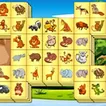






























Discover the Best Zoo Games: A Guide to Virtual Zoo Management
Step into the enchanting realm of virtual zoos, where the thrill of wildlife conservation and the challenge of management coalesce into an immersive gaming experience. These zoo games are a haven for animal lovers and aspiring zookeepers alike, providing a unique blend of strategic planning, creative design, and educational elements. Players are tasked with constructing and overseeing their own animal sanctuaries, making critical decisions that affect the well-being of their virtual charges and the success of their establishments.
As you delve into these games, you’ll encounter a variety of scenarios that mirror the complexities of real-world zoo operations. From habitat construction to species selection, every choice you make has repercussions. You’ll learn to balance the needs of the animals with the demands of zoo visitors, all while managing budgets and staff. The games often include realistic animal behaviors, encouraging players to consider the ethical implications of their management strategies and to prioritize animal welfare.
Moreover, these games serve a greater purpose beyond entertainment; they are a virtual platform for conservation education. They introduce players to the concept of biodiversity, the plight of endangered species, and the global efforts required to protect our planet’s precious wildlife. By simulating real-life challenges faced by zoos, such as breeding programs and habitat preservation, players gain a deeper appreciation for the role these institutions play in conservation.
Whether you’re a seasoned gamer or a newcomer to the genre, these zoo simulations offer an engaging way to learn about animal behavior, environmental stewardship, and the intricacies of running a zoo. So, prepare to embark on a journey of discovery and see if you have what it takes to build the ultimate virtual zoo.
Planet Zoo: The Ultimate Zoo Simulation Experience
In the realm of virtual zoo management, one game stands as a paragon of the genre, offering an unparalleled simulation experience. This game allows players to step into the shoes of a zoo director, tasked with the intricate design and day-to-day operations of their very own animal sanctuary. With a focus on authenticity, the game features lifelike animal behaviors and complex ecosystems, challenging players to create habitats that cater to the specific needs of different species.
The management system is robust, simulating the multifaceted nature of zoo operations. Players must navigate the logistics of animal care, staff management, and visitor satisfaction, all while keeping an eye on financial stability. The game encourages thoughtful decision-making, rewarding strategies that prioritize the health and happiness of the animals. This attention to detail extends to the educational content, which is woven seamlessly into gameplay. Players are exposed to real-world conservation issues and the importance of sustainable practices, making the game not only entertaining but also informative.
The game’s dynamic weather system, day and night cycles, and seasonal changes add to the immersive experience, affecting both the animals’ behavior and visitor attendance. The creative freedom offered allows players to let their imaginations run wild, designing intricate landscapes and innovative enclosures that defy the conventional zoo layout.
Whether you’re meticulously planning every detail or reacting to the unpredictable challenges of zoo management, this game delivers a compelling blend of creativity, strategy, and education. It’s a testament to how virtual worlds can enrich our understanding of wildlife conservation and the delicate balance required to maintain a thriving zoo.
Zoo Games and Their Role in Conservation and Education
Zoo games transcend mere entertainment, emerging as powerful tools in promoting conservation and education. By simulating the intricacies of wildlife management and habitat conservation, these games instill a sense of responsibility and awareness among players. They offer a window into the delicate ecosystems that sustain life on Earth, highlighting the interdependence of species and the impacts of human activity on the natural world.
Players are often introduced to endangered species and environmental challenges through in-game scenarios that require them to implement conservation strategies. These virtual experiences can inspire a passion for wildlife and an understanding of the critical role zoos play in protecting biodiversity. As players engage with these games, they learn about genetic diversity, the importance of breeding programs, and the complexities of reintroducing animals into the wild.
Educational content is cleverly integrated into the gameplay, providing facts about animal behavior, habitat needs, and the global efforts to combat extinction. This interactive form of learning is both engaging and effective, leaving a lasting impression on players of all ages. By managing their virtual zoos, players develop a deeper appreciation for the real-world challenges faced by conservationists and the importance of sustainable living.
In essence, zoo games serve as a bridge between virtual fun and real-world impact. They have the potential to shape the conservationists of tomorrow, fostering a generation that is informed, empathetic, and motivated to make a difference in preserving our planet’s precious wildlife for future generations.
Joining the Virtual Zoo Community
Engaging with the virtual zoo community is a transformative experience that can significantly enhance your gaming journey. By connecting with fellow enthusiasts, you have the opportunity to share insights, exchange creative ideas, and discuss the nuances of virtual zoo management. This collaborative environment is a treasure trove of knowledge, where seasoned players and novices alike can find tips and tricks to refine their gameplay.
The community is often a hub for the latest updates and developments in the world of zoo simulations. Here, you can stay abreast of new features, animals, and in-game events that continually refresh the gaming experience. It’s not just about keeping up with the latest trends; it’s about being part of a collective that shapes the future of these games through feedback and shared experiences.
Participation in the community can take many forms, from joining forums and social media groups to attending virtual events or contributing to collaborative projects. Within this network, you can showcase your most impressive zoo designs, celebrate your achievements, and even learn from the setbacks that are all part of the management process.
The sense of camaraderie in the virtual zoo community is palpable, with players supporting each other’s conservation efforts and educational growth. It’s a place where your passion for wildlife and zoo management can thrive, surrounded by like-minded individuals who understand the unique joys and challenges of creating and maintaining a virtual zoo.
Ultimately, joining this vibrant community is about more than just playing a game; it’s about being part of a movement that values the conservation and appreciation of wildlife. As you immerse yourself in this collective endeavor, you’ll find that the connections you make and the knowledge you gain will enrich your virtual zoo experience in ways you never imagined.
Conclusion: The Timeless Charm of Zoo Games
Zoo simulation games have an enduring allure that captivates players of all ages, blending the joy of gaming with the nobility of education and conservation. They offer a unique window into the complexities of zoo management, where the care of digital fauna meets the creativity of habitat design. As technology advances, these games evolve, boasting ever-more sophisticated graphics and intricate gameplay mechanics that bring us closer to the nuances of real-life animal care and preservation.
The charm of these games lies in their ability to educate while entertaining, to raise awareness about ecological issues while providing an engaging pastime. They encourage players to think critically about the environment and the impact humans have on it, all within the accessible and enjoyable framework of a game. This blend of fun and learning has the power to inspire future generations to take an active role in wildlife preservation.
As we look to the future, the potential for these games to incorporate new technologies and ideas promises to deepen the connection between virtual and real-world conservation efforts. The timeless appeal of zoo games is not just in their entertainment value, but in their capacity to foster a sense of stewardship for our planet’s diverse ecosystems. In the end, these games remind us of the delicate balance between humans and nature, and the role each of us can play in maintaining it for years to come.




